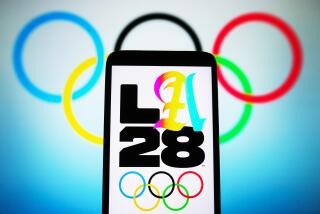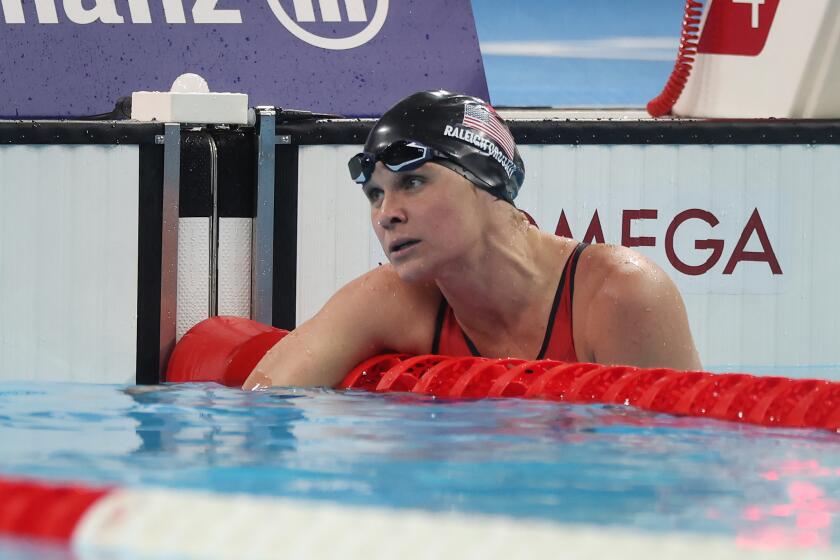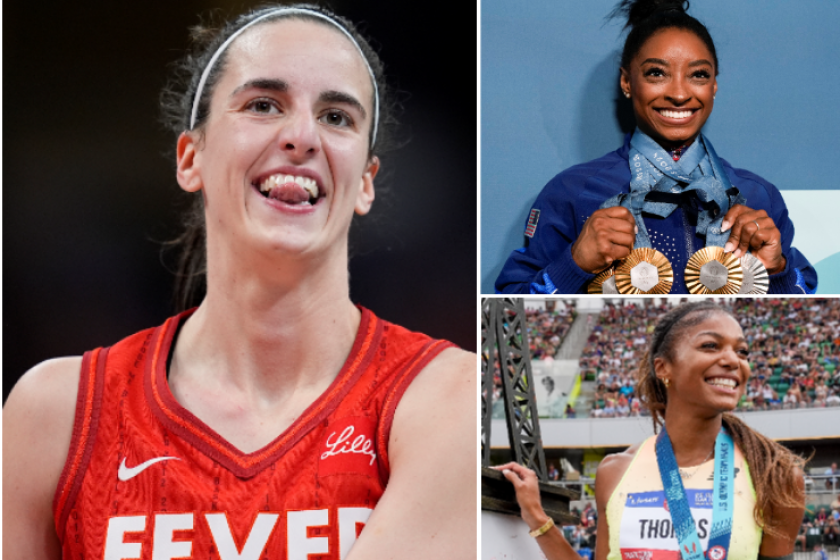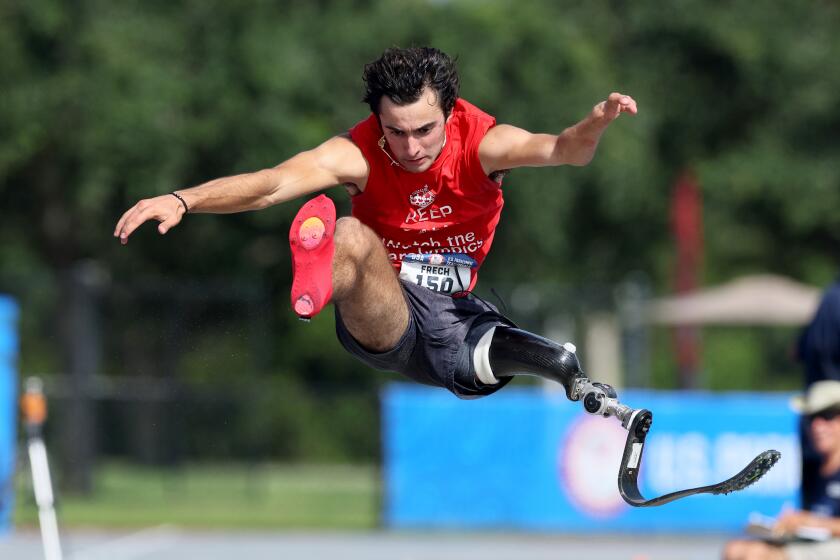Women are owning Canada’s podium
With each passing day, the weight pressed a little heavier on their shoulders.
Some of the Canadian athletes tried to shrug it off, but it was tough to ignore all that talk about dominating on home soil and owning the podium.
“You grow up in Canada,” said Hayley Wickenheiser, captain of the women’s hockey team, “you know the expectations.”
A week into the 2010 Vancouver Olympics, every athlete wearing a maple leaf knew the True North Strong and Free looked downright feeble with only six medals.
But now everything has changed.
Heading into the final day, the host nation leads all countries with 13 golds and stands a respectable third in the overall medal count with a total of 25.
While the men’s hockey team hogs the spotlight on Sunday, facing the rival Americans for gold, Canada can thank its female athletes -- who went on a tear over the last week -- for triggering this reversal of fortune.
“Girl power,” said Cori Bartel, a member of the curling team that won silver. “We’re just really, really proud of adding to the tally.”
Through Saturday, the women had reached the podium 14 times, plus once in ice dance, as compared with 10 times for the men.
This is nothing new. At the 2006 Turin Olympics, they won 16 of their nation’s 24 medals. Four years earlier in Salt Lake City, it was nine of 16, plus a pairs gold.
“We’ve got a very pleasant run of tremendous performances by our women over the past couple of Games,” said Michael Chambers, president of the Canadian Olympic Committee.
The national team desperately needed a repeat performance in Vancouver.
Back in 2005, officials unveiled “Own the Podium,” a program that raised more than $100 million to support and develop Olympic athletes in this nation of 33 million, about a tenth of the U.S. population.
Though skiers, skaters and bobsledders needed the support, they toiled under the shadow of the program’s stated goal: Finish atop the medal count in Vancouver.
Fans bought in, 73% of Canadians believing it was important for their team to finish among the top three nations, according to an Angus Reid Public Opinion poll conducted a week before the Games.
That apparently did not sit well with speedskater Clara Hughes, who said: “If you’re going to base this on medals, I don’t know what planet you’re on.” Ski cross competitor Ashleigh McIvor offered a different point of view.
“Yeah, there was pressure,” she said. “But you can also look at it like people having confidence in you.”
By the time McIvor won gold on Feb. 23, the women held a 7-4 lead over the men. That gap grew to 14-4 before the men earned a string of medals on Friday and Saturday.
Which raises a question: Why have the women done so well?
Canadian Olympic officials point to a strong history of gender equity in sports in their country.
Cheryl Bernard, the well-known skip of the women’s curling team, credits “Own the Podium” money that paid for training time, coaches and sports psychologists.
“I think the women are using it a lot,” she said. “I think you’re seeing the evidence of that.”
Though Chambers said Canada’s female athletes helped take pressure off the entire team during those difficult early days, he doesn’t read too much into the medal disparity.
“The numbers seem to be a greater vis-à-vis the women, but who knows?” he said. “We may flip to a men’s run for the next couple of Games.”
And the men remain front and center in one very significant respect.
A third of Canadians would consider the entire Olympics a failure if their men’s team loses to the U.S. in hockey, according to another Angus Reid poll released this week.
Still, the women seemed to know the importance of their role in Vancouver.
They turned that weight on their shoulders into gold, silver and bronze. They turned it into cheers from fans desperate for Olympic success.
Just ask Jennifer Heil, who started things off with a silver in ladies’ moguls the night after the opening ceremony.
“I felt like I had their wings on my back,” she said of the crowd. “This is Canada’s medal.”
More to Read
Go beyond the scoreboard
Get the latest on L.A.'s teams in the daily Sports Report newsletter.
You may occasionally receive promotional content from the Los Angeles Times.






